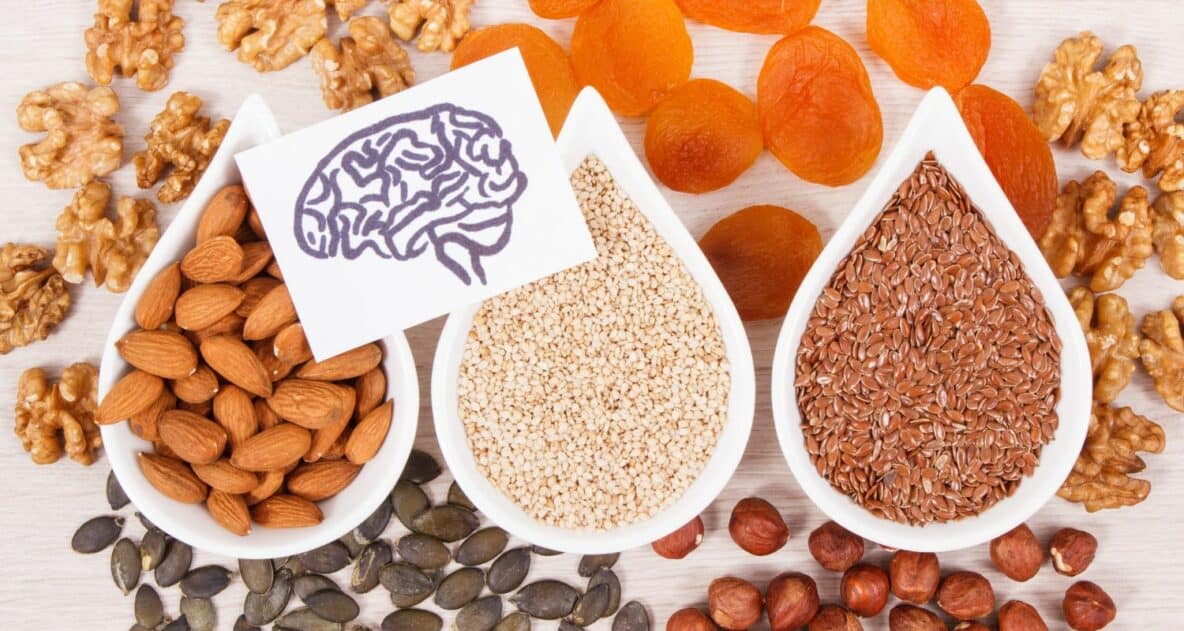It’s true that it is impossible to stop the clock on aging, but we do have some say in the way we go about it. Exercise, diet, sleep and hearing all play pivotal roles in the ways we age with grace.
What happens to our brains when we age
Some parts of aging are very visible and some are more experiential. The elasticity of our skin changes and we might see shifts in our body shape due to hormonal fluctuations. The typical experience of aging is that we get a bit achier, slower and heal more slowly.
But what is happening in our brain is exceptionally interesting. Our brain slows down, and while we keep our level of intelligence, our thinking and processing becomes less agile. Experts attribute this to loss of white matter, found within the deep tissues of the brain. Grey matter, another component of the brain, is responsible for information processing while white matter handles information transfer. Essentially, we can think (or process) at previous levels, but the connections take longer to make.
What difference does exercise make?
Exercise three or more times per week and you can reduce your risk of dementia by more than 30 percent. Even mild to moderate exercise can both prevent or reduce issues related to cognitive performance and memory in older people, so it’s never to late to pick up the habit and see results.
One of the major benefits of exercise is the way it increases blood flow throughout the entire body. This goes for those important inner ear cells to maintain healthy hearing levels all the way into our very brains. Oxygen rich blood is one of the best ways to preserve high functioning brain cells. Exercise also releases hormones in the brain which provide an environment those cells flourish in.
Ways to exercise
There are all sorts of ways to incorporate more movement into your lifestyle. There isn’t a perfect workout for everyone, the best workout will always be the one you actually do. That could mean putting on a favorite album and dancing in the kitchen, playing lawn games with friends or simply walking around your neighborhood for twenty minutes.
The aging brain and our diet
If you want to serve your brain the most helpful buffet, focus on fruits, vegetables, nuts and legumes. Choose to limit or avoid red meat or highly processed meats. Foods known as brain foods tend to be chock full of omega-3, like fatty fish. Some studies have shown that people with high levels of omega-3 in their diet have more grey matter in the brain. Antioxidants are found in fruits, vegetables and even seeds (among others) and they can reduce inflammation and oxidative stress in the brain, both of which preserve brain function.
Which foods to stock
Blueberries are a great antioxidant and are delicious and versatile. Use them in yogurt parfaits with granola, smoothies, pies or even sprinkle on salads. Salmon and tuna provide high levels of omega-3s. Kale, collards, spinach and broccoli are the leafy greens you want in your cupboard. Again, there’s not one superfood to stock in your kitchen that will save your brain. Instead, it’s the healthy foods that you will actually eat consistently.
How sleep (or lack of) impacts brain aging
We know that the brain slows as we age, but it also slows due to lack of sleep. The times we find rest and restoration for the brain most often come when we are catching Zs. As we sleep, the brain reorganizes itself and gets rids of toxins and unnecessary information. When we don’t sleep, our brain is at risk of memory issues and trouble focusing, because we have less resistance to stress. This might be troubling to hear if you are part of the 50 percent of the aging population which experiences great difficulty with their sleep habits, such as with insomnia.
How to get better sleep
Download a mindfulness app or begin a nightly meditation practice. Yoga or tai chi might be other meditative movement traditions to explore because they can couple mindfulness and movement. Quieting the mind can instantly improve blood pressure and other physical markers, plus it often carries a great impact in helping people sleep better and more regularly.
Hearing and it’s connection to brain aging
Hearing loss, particularly untreated, has a calamitous effect on our brain’s aging. Because sound information is what the brain receives during the hearing phenomenon, hearing loss interrupts that flow of information. As our brain receives less sound information, it can be associated with brain atrophy and neurodegeneration. Studies confirm that hearing loss is linked to higher rates of cognitive disorders like Alzheimer’s Disease.
Ways to treat hearing loss
Both cochlear implants and hearing aids are proven, successful interventions for hearing loss. What’s more, people with untreated hearing loss are less likely to participate in regular movement practices or exercise. Treating hearing loss can help to improve confidence, lessen fatigue and enhance a person’s overall quality of life.

